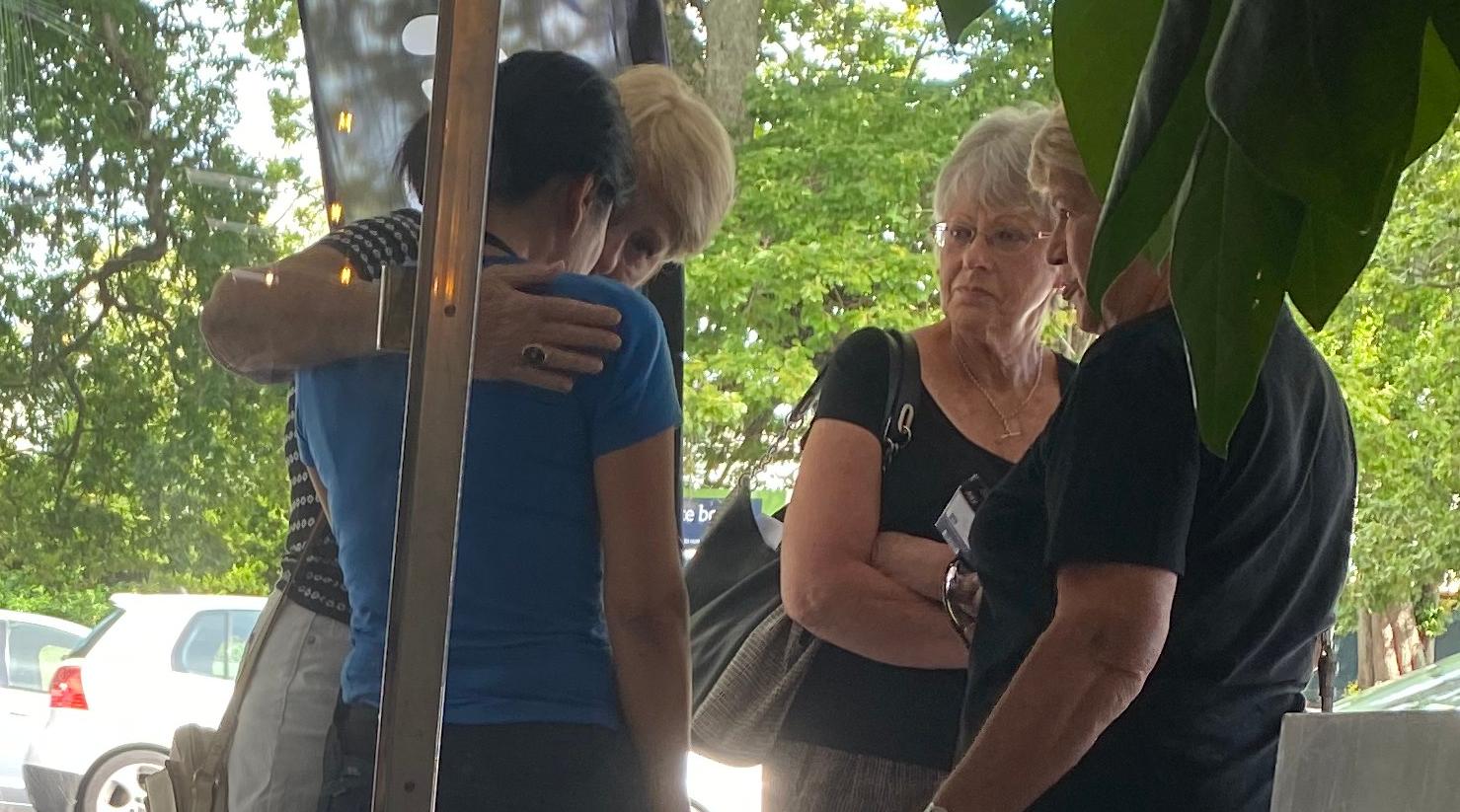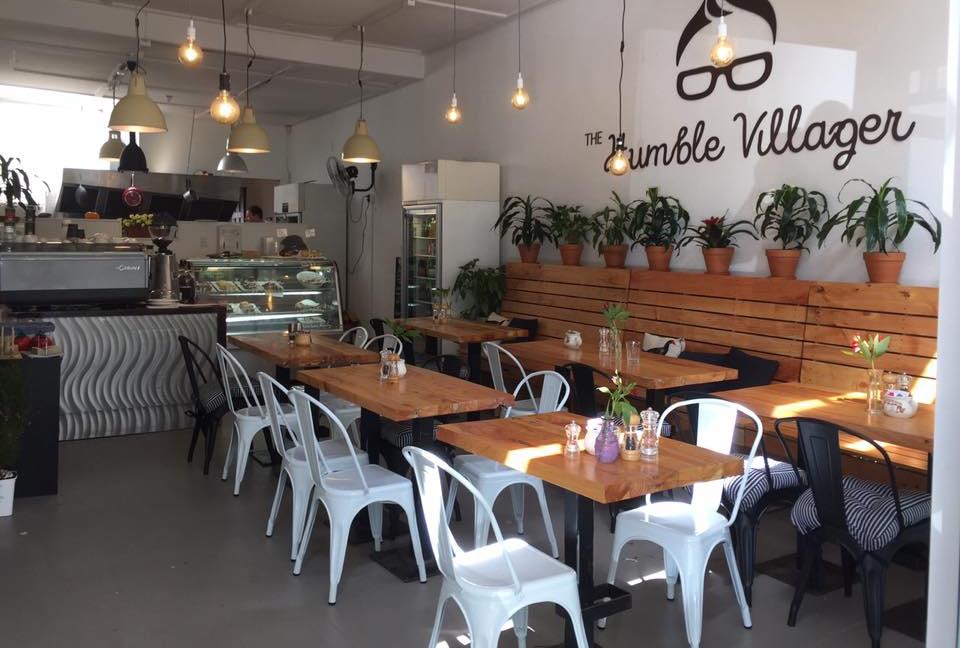Warning: This article contains details of an alleged racial attack that may upset some readers.
A man has been booted from a coffee shop in an upmarket Auckland suburb after an alleged racist tirade against Asian-New Zealander customers that left the cafe's Chinese-born manager in tears.
He was also filmed parroting the debunked Moriori myth - an argument seeking to legitimise European colonisation of New Zealand - before being kicked out of Epsom's Humble Villager cafe on Monday morning.
Those caught in the middle of the apparent xenophobic attack say they're shocked by the incident, which is totally at odds with their previous experiences in New Zealand.
They also suspect it may have been triggered by the COVID-19 pandemic, which has coincided with a spike in anti-Asian racism across the Western world.
'You people are always like this'
The abuse was aimed at Auckland-born and raised Fiona Yang, 18, her brother Felix, 21, and their mother, who arrived at the cafe not long before the man got there at around 11am.
The family, who are of Chinese descent, were in the process of ordering when the man arrived in the queue behind them and asked if he could order first as he was in a hurry.
When Felix refused, the man is said to have become "really triggered" and launched into his racist diatribe.
Ellen Zhang, who manages the Humble Villager cafe and was taking the Yangs' order at the time, said the man was very angry and complained that the "bloody Chinese" always ordered slowly.
"He said 'you people are always like this'," Felix recounts.
"He was being condescending and I pointed it out he'd said 'you people'. I was like, 'you're being racist' but he just went on to ramble about other things."

After being forced to wait his turn, the man went on to order as normal - but he wasn't done with the Yangs yet.
On the way to finding a table he approached them again, this time allegedly to tell them to go back to China - despite the fact both Felix and Fiona were born in Auckland's Mt Albert.
"I think that [first incident] lit up anger in him," Felix explained.
"He came over to the table [to tell us to go back to China] and then he took our order number, because he wanted to confuse the kitchen staff - which he did."
Zhang says the man later told the Yangs white people were in New Zealand first, and that their arrival had "opened the door" to Asians. By this time the family were fed up, and their mother lashed out.
"My mum was like 'the Māori were here first'," Fiona said. "So then he came up to us [again]. He was like 'let me give you a history lesson' and then said the Māori ate people or something."

In footage of the incident, Zhang and another staffer can be seen telling the man to leave, which he eventually agreed to do after several requests.
A group of Pākehā women at the table next to them then came to comfort both the Yangs and Zhang, who, hurt by the anti-Asian sentiment, had burst into tears.
"They came up and apologised on his behalf saying, like, 'you guys have a right to be here, you guys are New Zealand citizens'," Felix said.
Fiona said the concern for their wellbeing was "really touching".
Racist outburst 'probably triggered' by COVID-19
The Yangs say they wanted to share their story because of the spike in racially charged violence towards Asian people over the last year, coinciding with the COVID-19 pandemic.
All over the Western world, there has been a marked increase in anti-Asian racism since coronavirus was first detected in China's Wuhan province, before spreading to infect 67.9 million people globally.
The Human Rights Commission last July revealed there had been a 30 percent increase in racially motivated attacks in New Zealand since coronavirus arrived on our shores.
In a report released last month, it found 54 percent of Chinese respondents had experienced discrimination. These respondents also harboured more significant concerns about their personal safety than other ethnic groups.
"An unfortunate by-product of COVID-19 is that certain ethnic groups are often blamed and subsequently vilified for their perceived 'role' in an outbreak," Human Rights Commissioner Meng Foon said at the time.
"No one should have to change their behaviour to avoid risking discrimination, made to feel they don't belong, worry about their public safety, or experience negative mental wellbeing because of discrimination or racism."
The Yangs say while the man didn't reference the COVID-19 pandemic in his diatribe, they suspect it "probably triggered something" and caused him to lash out.
Fiona hadn't really experienced much racism until coronavirus made landfall in New Zealand. Then, during the first lockdown, a man tried to push her off her skateboard and told her to go back to China.
She says she didn't report it because she didn't have any proof.
"I think because of the COVID lockdowns, there has been more negativity towards Asian people, you know; people who wouldn't say anything before would now feel like they have a right to because of COVID," she said.
"I do have a couple of friends who also experienced general Asian racism."
Zhang, too, says the incident is not in keeping with her experience pre-coronavirus.
"I have been here [in New Zealand] for 15 years and never saw this kind of thing," she said. "I was so shocked."

The rise in anti-Asian racism hasn't just been confined to New Zealand.
In the US, it has sparked protests and prompted new President Joe Biden to sign a memorandum to combat bias in reporting hate incidents against Asian-Americans.
He also addressed it in an speech last week, saying Asian-Americans had been unfairly "attacked, harassed, blamed and scapegoated".
"At this very moment, so many of them, our fellow Americans, are on the front lines of this pandemic trying to save lives and still are forced to live in fear for their lives just walking down streets in America," he said.
"It's wrong, it's un-American, and it must stop."
The Moriori myth
While footage only captures the incident in its latter stages, it shows the man telling the Yangs: "You don't know New Zealand's history very well; the Māoris ate the Morioris, who were here first."
The idea that Māori arrived in New Zealand after Moriori then wiped them out completely is a common misconception which has been dubbed 'the Moriori myth'.
While it is true some Taranaki Māori killed about 300 Moriori and made many more their slaves in 1835, the Moriori people exist to this day, and many are based in the Chatham Islands (Rēkohu).

Maui Solomon, the chair of Hokotehi Moriori Trust, says the Moriori myth has become "powerfully ingrained in the psyche of New Zealanders".
"If Māori could push Moriori out... then later European migrants could push Māori off their land," he told RNZ in an attempt to explain why the misconception has persisted for so long.
"It suited the narrative, and it was a justification of European colonisation of Māori land."




